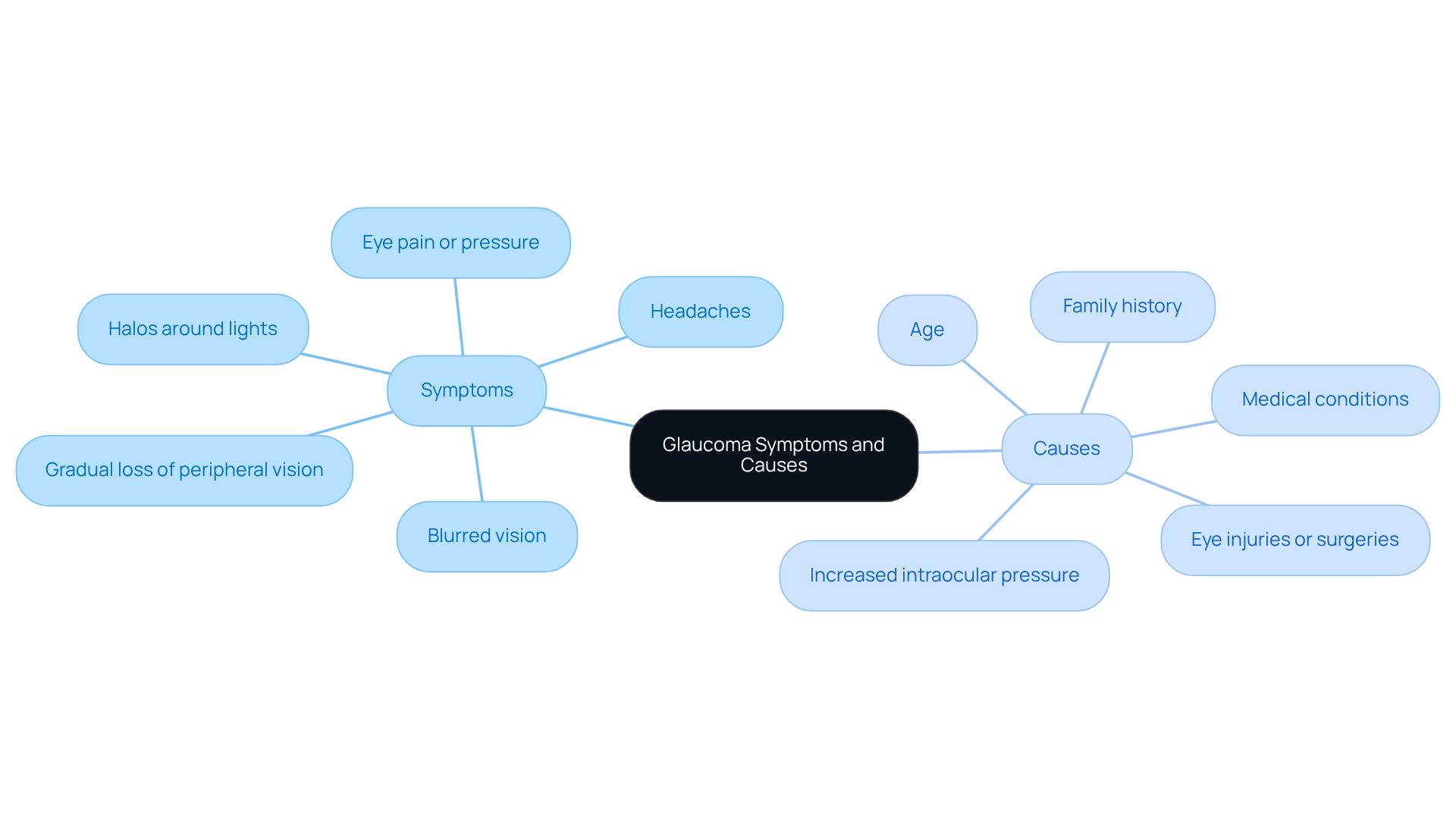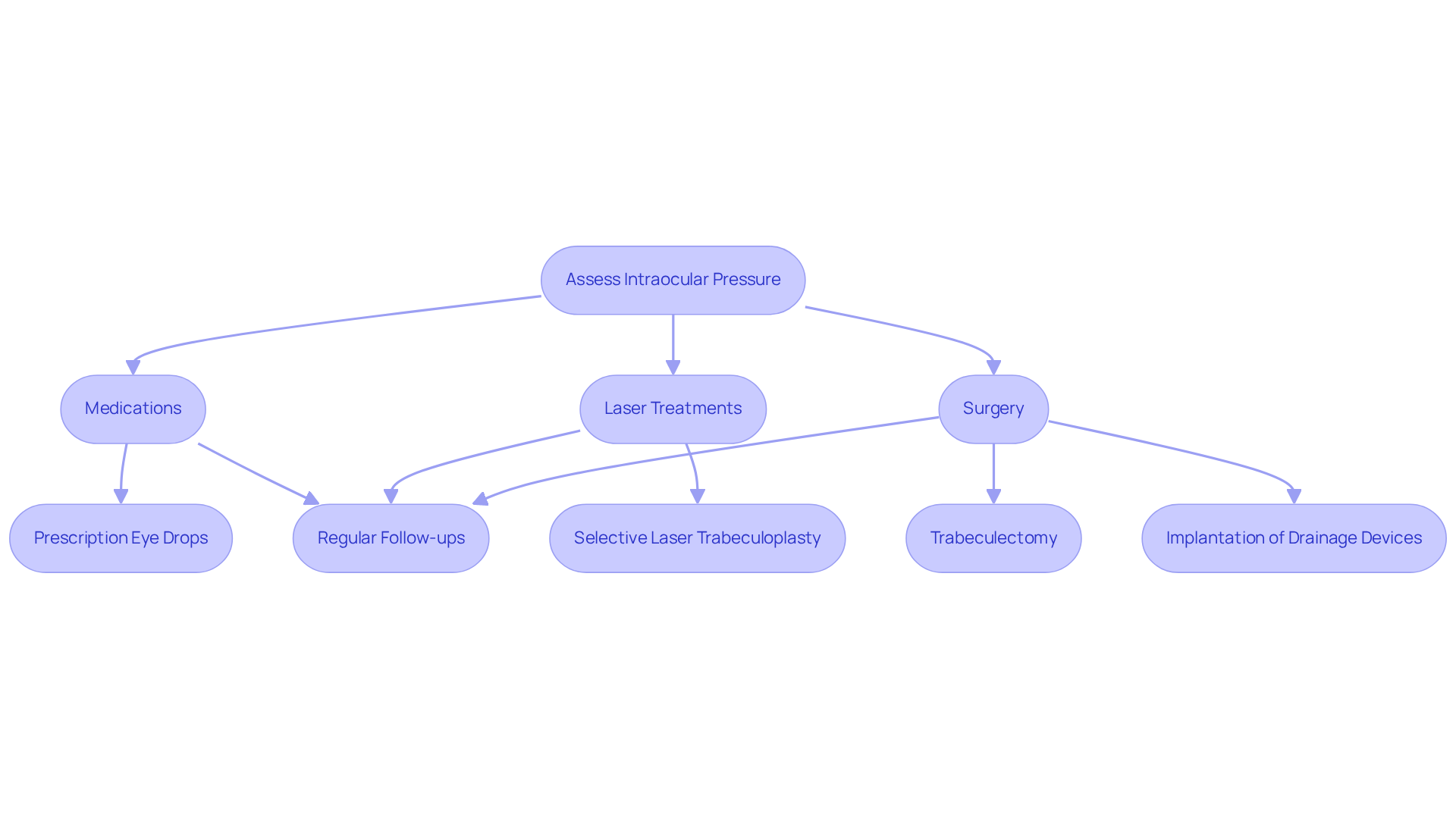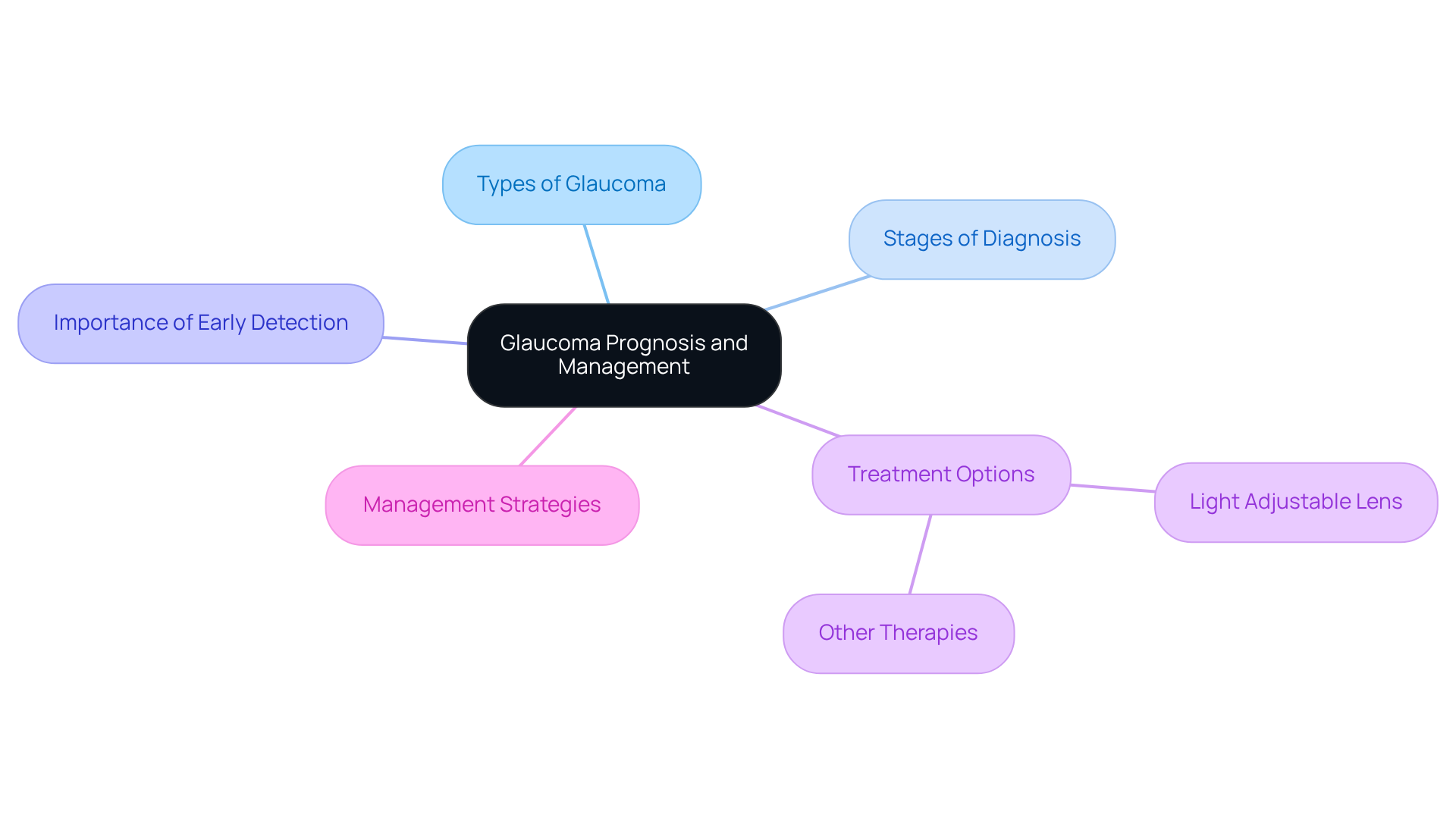Posted by: Northwest Eye in General on October 15, 2025
Overview
Glaucoma is a condition that can feel overwhelming, and while it is not curable, we want you to know that it can be effectively managed. There are various treatment options available that can help prevent further damage to your optic nerve and preserve your vision. We understand that early detection and regular management are crucial for maintaining sight, and we encourage you to stay proactive in your care.
Innovative treatments are emerging that allow many patients to lead normal, active lives despite their diagnosis. It’s common to feel anxious about the future, but rest assured that you are not alone in this journey. Many have found reassurance and support through effective management strategies, and we are here to help you through this process.
Introduction
Glaucoma, often referred to as the “silent thief of sight,” poses a significant threat to vision health, affecting millions worldwide without warning signs. We understand that this can be a frightening reality. Recognizing its symptoms and exploring treatment options is crucial for early intervention, which can be the difference between maintaining your sight and facing irreversible blindness.
As questions arise about whether glaucoma is curable, the complexities of its management and the latest advancements in treatment options present both hope and uncertainty. It’s common to feel overwhelmed by these questions.
What steps can you take to safeguard your vision against this formidable condition? We are here to help you through this process.
Define Glaucoma and Its Importance
Glaucoma is a group of eye diseases that can harm the optic nerve, often due to (IOP). This condition is a leading cause of irreversible blindness worldwide, and we understand how concerning that can be. It’s important to recognize that glaucoma can progress without noticeable symptoms, which makes crucial to prevent .
Awareness of is vital. can significantly improve outcomes for those affected, and we want you to feel reassured that help is available. If you have any concerns about your , please don’t hesitate to seek care. Remember, we are here to help you through this process, ensuring you receive the support and information you need.
Identify Symptoms and Causes of Glaucoma
Symptoms of this eye condition can vary depending on the type, and we understand how concerning that can be. Common symptoms include:
- Gradual loss of peripheral vision (often unnoticed until significant damage occurs)
- Halos around lights
- Eye pain or pressure
- Headaches
The causes of glaucoma can also be a source of worry. They include:
- Increased due to fluid buildup
- Age (risk increases after 40)
- Family history of glaucoma
- Certain medical conditions, such as diabetes or high blood pressure
- Eye injuries or surgeries
Recognizing these symptoms and understanding the can prompt individuals to seek sooner. It’s crucial for effective management, and through this process.

Explore Management and Treatment Options for Glaucoma
Managing glaucoma is an important step in protecting your vision, and we understand how concerning the issue of can be. The primary goal is to assess if glaucoma is curable by reducing to prevent further damage to the optic nerve. Here are some that may be recommended:
- Medications: Prescription eye drops are often the first line of treatment. They work by either improving fluid drainage or reducing fluid production in the eye, helping to lower pressure.
- : Procedures such as selective laser trabeculoplasty (SLT) can effectively enhance drainage and reduce intraocular pressure.
- Surgery: If medications and laser treatments do not provide the needed relief, surgical options like trabeculectomy or the implantation of drainage devices might be considered.
with your eye care professional are crucial. These appointments allow for monitoring of your condition and adjustments to your as necessary. We encourage you to , especially regarding whether is glaucoma curable, and to adhere to the prescribed treatments. Remember, you are not alone in this journey; we are here to help you through it.

Understand Prognosis and Long-Term Outlook for Glaucoma
The outlook for this eye condition can vary significantly based on its type and the stage at which it is diagnosed. We understand that hearing about can be concerning; it is a long-term condition that may lead to if not addressed. However, can greatly enhance your results. Many patients find that with appropriate treatment, they can maintain .
It’s crucial to have and adhere to prescribed therapies to preserve your vision and prevent progression. While we acknowledge that cannot be cured and many ask, ‘is glaucoma curable?’, it can be effectively managed, allowing you to lead a normal, active life. Innovative treatments, such as the , may offer additional options for managing glaucoma effectively. Remember, we are here to help you through this process and support you every step of the way.

Conclusion
Understanding glaucoma is essential for preserving vision and preventing irreversible blindness. While glaucoma is not curable, it can be effectively managed through various treatment options. We understand that early detection and regular monitoring are critical in mitigating the risks associated with this condition, allowing individuals to maintain a good quality of life.
This article outlines the symptoms, causes, management strategies, and prognosis of glaucoma. Key points include the importance of recognizing symptoms like peripheral vision loss and eye pressure. It’s common to feel overwhelmed by treatment options, but understanding medications, laser treatments, and surgery can empower you. Regular follow-ups with eye care professionals are vital for adapting treatment plans and ensuring optimal outcomes.
Ultimately, awareness and proactive management of glaucoma can significantly enhance the long-term outlook for those affected. By staying informed and seeking timely medical advice, individuals can take control of their eye health. Emphasizing the importance of regular eye exams and adherence to treatment can empower those at risk to lead fulfilling lives while managing this chronic condition. Remember, we are here to help you through this process.
Frequently Asked Questions
What is glaucoma?
Glaucoma is a group of eye diseases that can damage the optic nerve, often caused by increased intraocular pressure (IOP).
Why is glaucoma important to understand?
Glaucoma is a leading cause of irreversible blindness worldwide, making it crucial to recognize and address the condition.
Can glaucoma progress without symptoms?
Yes, glaucoma can progress without noticeable symptoms, which underscores the importance of early detection and treatment.
How can early detection of glaucoma impact treatment outcomes?
Timely intervention can significantly improve outcomes for individuals affected by glaucoma, helping to prevent vision loss.
What should I do if I have concerns about my eye health?
If you have any concerns about your eye health, it is important to seek care and support, as help is available.






